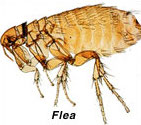 Imagine if your dog or cat got lost. You’d want to give him or her the best chance of getting home. With microchipping, you can.
Imagine if your dog or cat got lost. You’d want to give him or her the best chance of getting home. With microchipping, you can.
Microchipping is a safe, permanent way to identify your pet in case he or she becomes lost. A microchip, which is a tiny device about the size and shape of a grain of rice, is placed just under the loose skin at the back of the neck. When a lost dog or cat without an ID tag is found, a veterinarian or veterinary technician will use a handheld microchip scanner to check for a chip. If the pet has one, it will transmit its ID number to the scanner via a low-frequency radio wave. The veterinary hospital or shelter then calls the chip manufacturer, retrieves the pet owner’s contact information, and calls the owner.
Even the most responsible pet owners can’t always guarantee their pet won’t get lost. A leash could break or slip out of your hand, a pet could push through a screen door or window, or a contractor or friend might accidentally leave a door or gate open.
The veterinary team at LaSalle Animal Hospital recommends microchipping for all pets. A microchip is an excellent means of ensuring that you and your pet are reunited in the event of a separation.
Reasons to microchip your pet:
· It is a permanent method of pet identification
· Provides the best chance of your pet being returned to you in the event they go missing
· Quick and painless procedure which is similar to your pet receiving a vaccination
· Lasts for the lifetime of your pet
Register your pet’s micropchip with the 24PetWatch Lost Pet Recovery Network, they provide free registration for all brands of microchips in the US, Canada and UK. It is important to keep your contact information as current as possible as the information which is provided is what will be utilized to reunite you with your pet.
Please contact us to schedule an appointment to microchip your pet. Although we hope your pet never becomes lost, we want you to be prepared. We can also suggest a plan to have in place so if your pet does go missing, you’ll be able to act quickly.
We can microchip ferrets, rabbits, birds, and other companion animals, too!
Pet microchip lookup: www.petmicrochiplookup.org
 Common parasites included roundworm, hookworm, tapeworm, giardia and coccidia. Parasites are released through an animal’s feces and eggs can live in the environment for months. Parasites are zoonotic – so it can be transmitted from pets to people.
Common parasites included roundworm, hookworm, tapeworm, giardia and coccidia. Parasites are released through an animal’s feces and eggs can live in the environment for months. Parasites are zoonotic – so it can be transmitted from pets to people.
 Fleas can cause problems for pets ranging from minor to life-threatening. Not only can these parasites cause severe itching, irritation, and allergies, but they can also transmit tapeworms and diseases. Fleas can infest dogs, cats, ferrets, mice, and rats. And fleas don’t just stay on pets; they can bite people, too. For more information, contact us or see the flea article in the Pet Health Library on our site.
Fleas can cause problems for pets ranging from minor to life-threatening. Not only can these parasites cause severe itching, irritation, and allergies, but they can also transmit tapeworms and diseases. Fleas can infest dogs, cats, ferrets, mice, and rats. And fleas don’t just stay on pets; they can bite people, too. For more information, contact us or see the flea article in the Pet Health Library on our site. When they bite, mosquitoes can transmit heartworm infection. And those heartworms can wreak havoc on your dog or cat. These parasites can severely and sometimes fatally damage the heart, lungs, and blood vessels. Some pets may not show any signs of infection; in those that do, symptoms can vary widely.
When they bite, mosquitoes can transmit heartworm infection. And those heartworms can wreak havoc on your dog or cat. These parasites can severely and sometimes fatally damage the heart, lungs, and blood vessels. Some pets may not show any signs of infection; in those that do, symptoms can vary widely. Ticks are becoming more and more prevalent in North America, and they’re now being found in areas where people and pets didn’t previously encounter ticks. These parasites aren’t just a nuisance; they can cause serious—and sometimes deadly—diseases, including Lyme disease, Rocky Mountain spotted fever, babesiosis, ehrlichiosis, and tick paralysis. Contact us immediately if your pet starts coughing or has joint pain, trouble breathing, fever, weakness, or loss of appetite, weight, energy, or coordination.
Ticks are becoming more and more prevalent in North America, and they’re now being found in areas where people and pets didn’t previously encounter ticks. These parasites aren’t just a nuisance; they can cause serious—and sometimes deadly—diseases, including Lyme disease, Rocky Mountain spotted fever, babesiosis, ehrlichiosis, and tick paralysis. Contact us immediately if your pet starts coughing or has joint pain, trouble breathing, fever, weakness, or loss of appetite, weight, energy, or coordination. Imagine if your dog or cat got lost. You’d want to give him or her the best chance of getting home. With microchipping, you can.
Imagine if your dog or cat got lost. You’d want to give him or her the best chance of getting home. With microchipping, you can.
